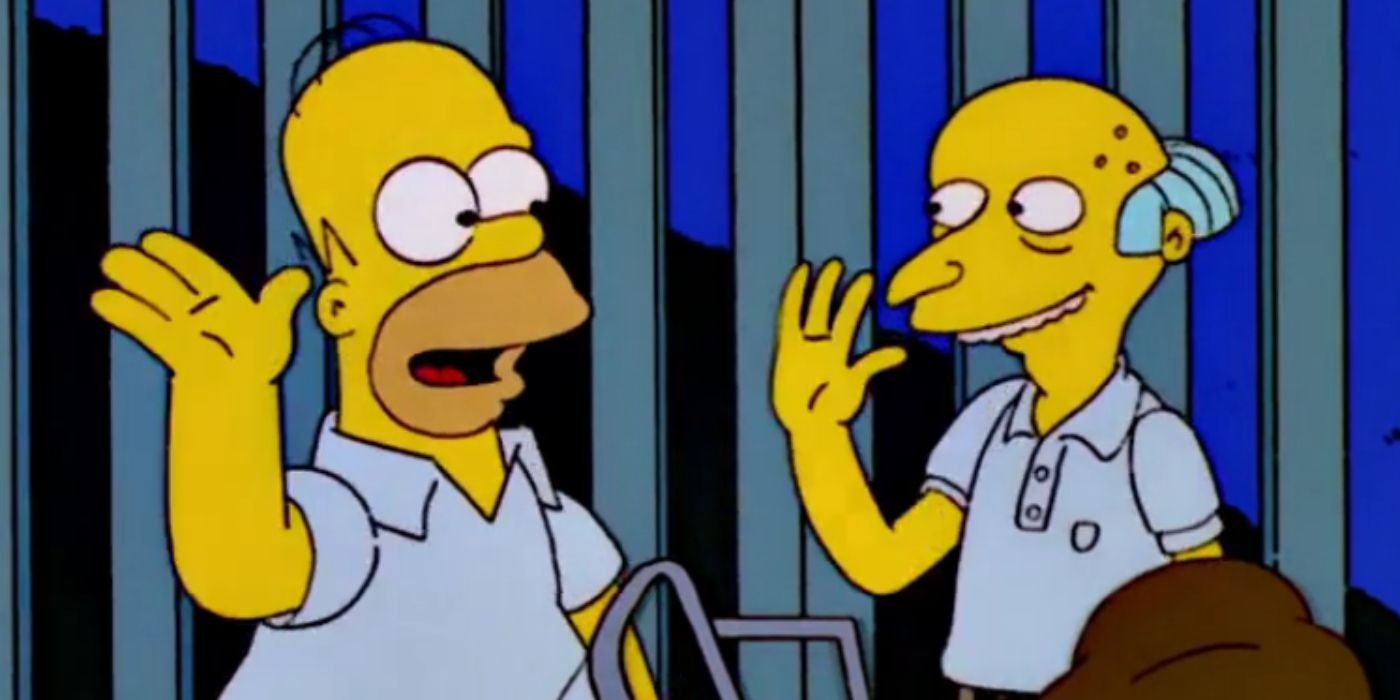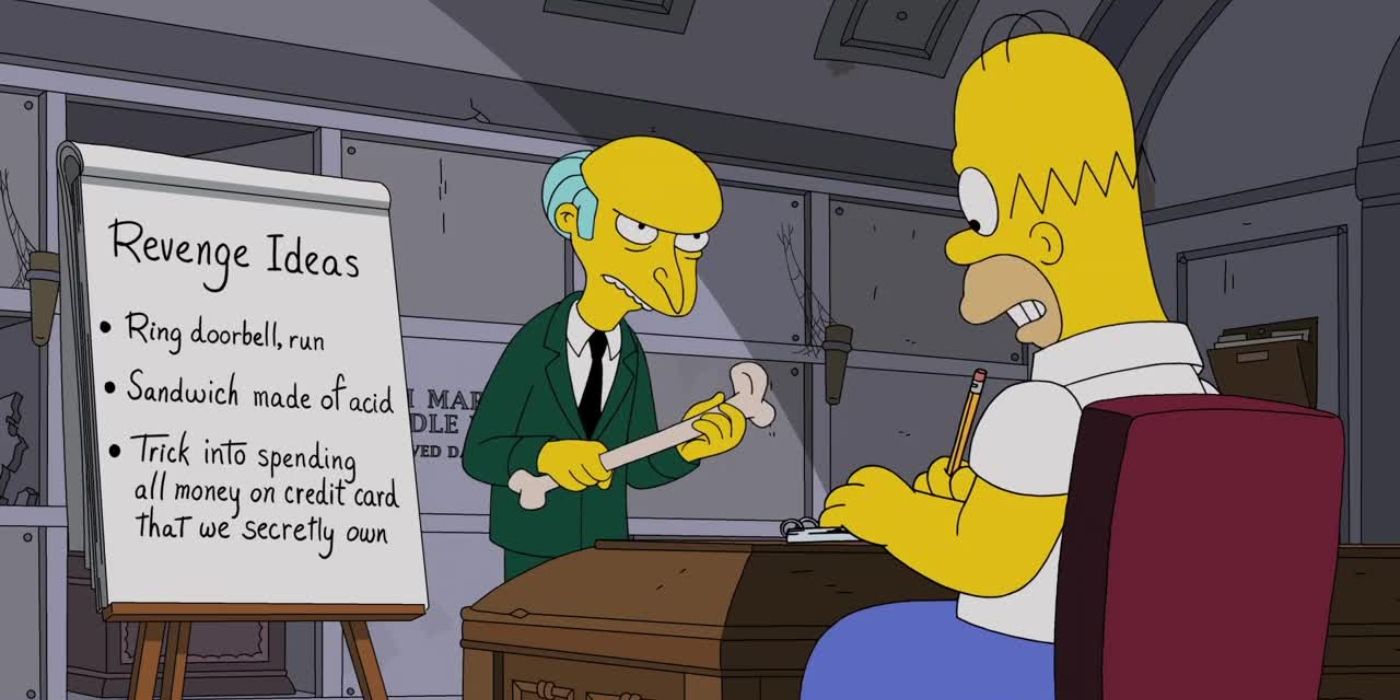The Simpsons is a far darker show than it may seem in its brighter moments, and one fan theory might present one of the darkest possible interpretations of the show's patriarch, Homer, and the impact he's secretly had on the town. A fan theory about The Simpsons suggests Mr. Burns is actively bribing Homer, explaining why the family can have such wonky finances while Homer always has cash. It also explains a number of other aspects of the series and paints Homer as a far more nefarious figure within Springfield.
One of the most consistent types of story beats to occur in The Simpsons is the family's monetary problems. Homer is often hinted to make less than he should at the nuclear power plant, and the family often scrapes by with what little they have with them. Frequent episodes have pointed out that the family has no real money in savings, and the closest thing the family has to a college fund is revealed in Season 24, Episode 4, "Gone Abie Gone," and it's on a poker website.
However, Homer is also shown to be frequently flush with cash and capable of spending large amounts of money on impulse buys. He often lends Bart and Lisa money, and he once put down $1100 to get Itchy & Scratchy Bucks in Season 6, Episode 4, "Itchy & Scratchy Land." This TVTropes fan theory explains how Homer can be financially struggling yet cash rich.
The theory suggests that as a nuclear safety inspector, Homer's laziness and lack of initiative makes him an asset to his boss, so Mr. Burns could be bribing Homer to help ensure his silence, allowing the plant to remain open. This would explain why Homer always has cash, as he wouldn't be able to take this money and put it into the bank. This would also explain how the family stays ahead of their bills and has money for their various adventures and every-day expenditures, even though their bank account is often suffering.
Homer being bribed over the plant's various faults could also explain why Homer is able to so easily abandon his post and go on adventures without threatening his position. Another inspector may prove more difficult to manage, so it's possible the plant keeps Homer on despite him not always being there, as seen in Season 5, Episod 1, "Homer's Barbershop Quartet," where Lenny and Carl place a chicken at his station while he's away.
It also explains why Burns would be willing to keep Homer at the plant or rehire him multiple times, despite impulsively firing him on numerous occasions. Burns realizes Homer's importance, and his notable status in the town would also make him "disappearing" hard to hide.
Homer's potential effectiveness as a safety inspector has been reinforced in the series, such as in Season 12, Episode 9, "HOMR." In that episode, Homer has his intelligence heightened and sends a single package to the federal authorities, which causes the plant to be almost immediately closed for repairs.
If Homer really wanted to, he could actually do his job and take down the dangerous plant, but this theory explains why Homer is so lax in his efforts to help the town, thus making him partially responsible for its safety and environmental issues. The theory casts Homer in a far darker light, suggesting the loveable goofball is a fixture at the plant mainly for his criminal compliance, as he's willing to turn a blind eye for cash.


